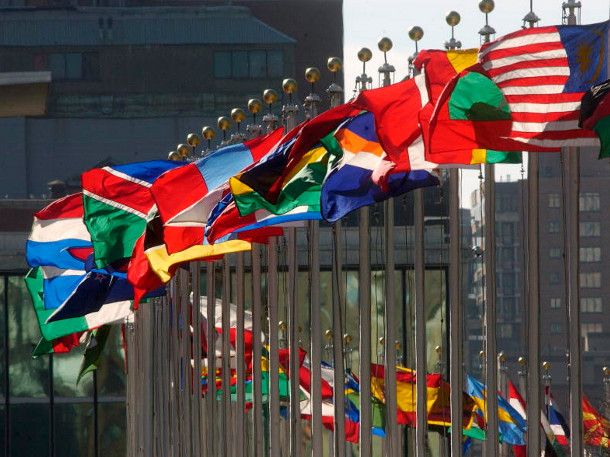
The General Assembly of the United Nations meets this week in New York City for its 69th annual gathering. All 193 member nations are represented, and it is this meeting which helps to focus much of the UN’s yearly debates, policies, and proposed actions for the year ahead. It means big changes for New York City, too, with security and road closures significantly changing traffic patterns in the area.First, though, a bit of background.
The United Nations
The United Nations, founded in 1945 after the chaos of WWII, is essentially an international organization designed to encourage world peace and security. All sovereign nations are eligible to join and receive a single vote in all UN General Assembly (GA) matters. The UN is authorized by member states to take action on a wide range of issues, and the debating chamber offers neutral territory for states to discuss often controversial topics. Size, wealth, population, age and the political system of an individual country do not matter – they may still speak and vote on equal terms with all other members.Since its foundation, the UN has grown from 51 original member states to its current size of 193 participating countries. Along with the exponential growth has come complications, bureaucracy, and, at times, problems. The General Assembly aims to act as an opportunity for members to debate relevant issues, propose changes, vote on policy issues, and serve as an equal voice within the body of the UN. A two-thirds majority of the Assembly is required on anything related to international security, budgets, or admission of new members. To help things run more smoothly, each assembly elects a president – the President of the 69th Session is Uganda’s Sam Kutesa.The UN is a huge organization, funded by member state contributions. The UN Secretariat currently employs almost 8,000 people, with a further 8,000 employed under special budgets related to specific tasks and projects. The UN as a whole – that is, all agencies worldwide, including the World Bank and the International Monetary Fund (IMF) – employs over 60,000 people. While that may seem like a lot, it’s fewer than Coca-Cola, or the US Department of Education. Considering the UN’s worldwide mission, the number of staff is small. While the UN has missions in several countries, the headquarters, and the meeting place of the General Assembly, is New York City.
The UN Complex
The UN complex in Turtle Bay, Manhattan, has housed the UN since it was built in 1952. With its own stamps and radio identifier, the UN operates for the most part as a separate entity within New York City. However, although the UN buildings and grounds are under the administration of the UN, local, federal, and national U.S. laws do apply – though in some cases UN law can supersede this.The General Assembly building, with its famous domed roof, has room for the entire Assembly to meet – the countries sit in English alphabetical order, to prevent any one country from receiving precedence. Although the buildings of the UN are in New York City, the US has no special rights.
The General Assembly
The 69th General Assembly, which begins this September, will meet to promote international peace and security. The General Debate will run from September 24 through September 30, 2014. The list of topics to be discussed and covered is huge – with the possibility of change for millions of people. The challenge of the UN GA is to seek consensus, where possible, and to avoid conflict or the use of peacekeepers unless as an absolute last resort.Specific focuses for this year include sustained economic growth, the promotion of human rights, and promotion of justice and international law, as well as a huge number of other disputes and questions. These include matters such as development in Africa, general disarmament, drug control, crime prevention, and combating international terrorism in all its forms and manifestations.For an inside view of the UN, visit “Turtle Bay” a blog by Washington Post correspondent Colum Lynch which gives an interesting look at all things United Nations.
Road Closures
Since the General Debate brings countless world leaders into one spot, security is high. Road closures and security check points around the Turtle Bay neighborhood and surrounding areas mean you may need to alter your travel plans. Road closures always mean vehicle access is prevented, and often pedestrians are also denied access.Be sure to review your travel plans if you will be in the city during the General Debate. For full information on the expected closures, visit the NYPD Traffic Advisory website.

